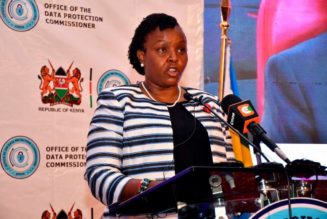Government-owned vehicles will solely refuel using automated card systems and stay monitored through digital trackers in proposed changes by the National Treasury aimed at curbing operational costs.
The proposal will see fuel programmes centralised and automated for all government fleets to curb wastage.
“By tracking and monitoring consumption using a computerised fuel card system, the Government can have accurate and up-to-date data. Computerised fuel monitoring system allows all vehicle users to refuel their vehicles with a key containing a computer chip that is identified by vehicle identification number tied to the users’ individual personal identification number” Treasury Cabinet Secretary John Mbadi.
“Fuel can be dispensed based on a limited quantity of fuel defined per key, or it can be dispensed on unlimited fuel quota. Designated drivers of specific vehicles along with supervisors are assigned administrative keys that serve as master keys enabling them to override all vehicles” he added.
The Treasury said that computerised chips would track the fueling schedules and volumes of each vehicle.
“As information about fuel dispensing accumulates in the pumping station computer, a central server calls the computers multiple times each day and collects all accumulated information. The software tracks the date and time each vehicle is refueled and records the type of fuel, liters, odometer readings, kilometers per liter, and total fuel cost” Mr Mbadi said.
The CS said the information would additionally be used to monitor budgeted versus actual fuel consumption to help define allocation of expenditure.
Already, the government is piloting an automated vehicle location system, fuel logging, and tracking with the National Police Service among other agencies as it sets eyes on rolling out the system for all its vehicles.
As part of the proposals to cut its transport budget, the Treasury also wants Cabinet Secretaries and governors only assigned two official cars while members of boards of parastatals will use private cars and seek reimbursement in proposed radical changes by the National Treasury aimed at curbing runaway transport costs.
The proposals will also see all senior officials at both national and county governments share vehicles-a big shift from the current opulence where officers have access to multiple cars.
The Treasury said that the present transport system has been abused, sending costs soaring to Sh14.3 billion as of 2023 from Sh8.6 billion in 2021.
“What is important to observe here is that the bill for providing Government Transport will continue to rise if appropriate policy interventions are not put in place,” Mr Mbadi said.
In the proposal, one vehicle shall be allocated to each Principal Secretary, head of parastatal, and Chief Executive of independent offices and commissions.
“One vehicle shall be allocated to each chairperson of state cooperation, senior cadre officers shall be facilitated from a pool of vehicles, commissioners of independent officers and members of parastatal boards are required to use private vehicles and seek reimbursement,” the Treasury said.
Members of the boards of parastatals will claim between Sh26 and Sh58 per kilometre, depending on the engine of the private car used.
Cars with engine capacity of 1500cc to 1800cc attract the highest reimbursement rates at Sh58 while the rate for those whose capacity is between 850cc to 1050cc is Sh26 per kilometre.
At the County level, one vehicle shall be allocated to each Deputy Governor, County Executive Committee member, and chief Officer.








